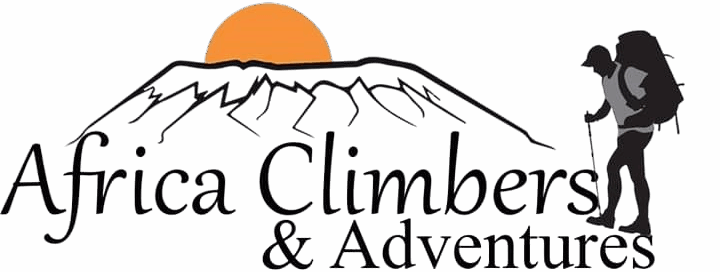Marangu Day Trip Guide: Waterfalls, Culture & Coffee Tours Near Moshi
General Overview
A day trip to Marangu offers visitors an authentic Tanzanian cultural experience combined with breathtaking natural beauty. Nestled on the southeastern slopes of Mount Kilimanjaro, this fertile region serves as the ancestral home of the Chagga people.
The area’s cool climate, rich volcanic soil, and abundant rainfall create ideal conditions for coffee and banana cultivation, while its network of hiking trails leads to spectacular waterfalls and historic sites. This destination provides the perfect balance of outdoor adventure and cultural immersion without requiring extensive travel from Moshi or Arusha.
Trip Details
Location & Distance
Marangu lies approximately 25 kilometers (about 45 minutes by road) northeast of Moshi town. For visitors coming from Arusha, the journey covers about 90 kilometers and takes roughly two hours. The terrain consists of rolling hills and valleys with well-defined trails that wind through lush vegetation.
How to Get There
Private vehicle hire remains the most convenient transportation option, with numerous taxi services available in Moshi. Several reputable tour operators offer organized day trips that include transportation, guides, and activity fees. Budget-conscious travelers can utilize public transportation via dala-dala minibuses that regularly depart Moshi for Marangu.
Best Time to Visit
Early morning departures (7-8 AM) allow visitors to enjoy cooler temperatures and optimal lighting for photography. The dry seasons (June-October and December-February) provide the most comfortable hiking conditions. Visitors should avoid periods of heavy rainfall as trails become slippery and waterfall currents may be dangerously strong.
Things to Do in Marangu
Hike to Ndoro Waterfall
The moderately challenging trail to Ndoro Waterfall winds through verdant banana plantations and coffee farms, offering glimpses of rural Chagga life. After approximately 90 minutes of hiking, visitors are rewarded with the spectacular sight of water cascading 50 meters down moss-covered volcanic rock formations. The natural pool at the base provides a refreshing swimming opportunity, though caution is advised during periods of high water flow.
Explore Chagga Caves
These historic underground networks served as crucial shelters and storage facilities during intertribal conflicts in the 19th century. Knowledgeable local guides explain the caves’ strategic importance while demonstrating how the Chagga people utilized these spaces for food preservation and protection. The cool, dimly lit passages offer a fascinating contrast to the bright tropical landscape above ground.
Coffee Farm Tour
Marangu’s microclimate produces some of Tanzania’s finest arabica coffee. Visitors can observe the entire production process from seedling to roasted bean on working family farms. The tours typically conclude with a traditional coffee ceremony where guests sample freshly brewed coffee while learning about its cultural significance to the Chagga people.
Visit a Chagga Village
Authentic cultural encounters await in Marangu’s traditional villages where visitors can observe daily activities like banana beer production, basket weaving, and food preparation. Many families welcome guests into their historic thatched-roof homes to share stories about Chagga traditions and contemporary life on Kilimanjaro’s slopes.
Picnic with Kilimanjaro Views
Several scenic viewpoints along the hiking trails provide ideal spots to enjoy packed lunches while admiring the majestic snow-capped peak of Mount Kilimanjaro. On exceptionally clear days, the mountain creates a dramatic backdrop for photographs of the surrounding farmland and forests.
Safety Considerations
Engaging local guides significantly enhances both safety and the quality of the experience, particularly when exploring the caves or navigating less-marked trails. Visitors should remain aware of their footing on uneven terrain and near waterfall areas. Respecting local customs by dressing modestly and requesting permission before photographing residents helps maintain positive community relations.
Sustainable Tourism Practices
Responsible visitors can support Marangu’s community by purchasing directly from local artisans and farmers. Minimizing plastic waste through reusable water bottles and proper trash disposal helps preserve the area’s natural beauty. Fair compensation for guides and fair prices for local goods contribute to sustainable tourism development.
Photography Tips
The interplay of light and shadow in the forested areas creates excellent photographic opportunities, particularly in early morning. A polarizing filter can help capture the vibrant greens of the vegetation and the sparkling quality of the waterfall mist. When photographing local residents, always engage respectfully and consider sharing copies of photos as a gesture of appreciation.
Frequently Asked Questions
Is Marangu suitable for children?
Many families enjoy visiting Marangu, though parents should assess their children’s hiking abilities as some trails involve steep sections. The cultural activities and waterfall swimming particularly appeal to younger visitors.
Are restroom facilities available?
Basic toilet facilities exist at major sites, though visitors should be prepared for rustic conditions. Carrying personal hygiene supplies is advisable.
What wildlife might we encounter?
While not a wildlife-focused destination, visitors often spot various bird species and occasionally monkeys in the forested areas. The area is free of dangerous large game animals.
REQUEST FREE QUOTE
Our Whatsapp chat available 24/7

Price Includeds
Park entry fees and government taxes
Private 4×4 safari vehicle with a pop-up roof
Professional English-speaking driver-guide
Full-board accommodation during the safari
Bottled drinking water during game drives
Airport transfers (arrival and departure)
Price Excludeds
International and domestic flights
Travel insurance and visa fees
Tips for the guide and lodge staff
Alcoholic and soft drinks at lodges
Personal expenses (e.g. souvenirs, laundry)
Optional activities (e.g. balloon safari, Maasai village visit)
